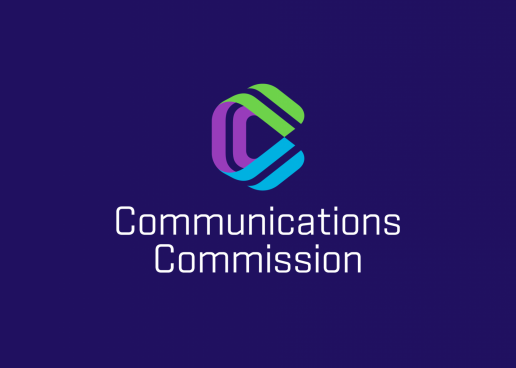ComCom: Human Rights Centre’s Document Contains Numerous Errors

The Communications Commission responds to the document published by the Human Rights Centre (HRC) on 14 February 2024, which evaluates the amendments to the Law of Georgia on Broadcasting and contains factual errors.
We have frequently pointed out that the Communications Commission welcomes the participation of civil society in the review of the Commission's activities, regulatory legislation and draft laws. The Commission has been an active organiser and participant of private-public dialogue with representatives of civil society with regards to the legislation and planned legislative changes. At the same time, it is of utmost importance for civil society representatives to avoid spreading misleading, factually inaccurate information and unsubstantiated assessments concerning the legislation and the activities of the Communications Commission.
It is unfortunate that the document published by the Human Rights Centre contains a number of factual inaccuracies and largely relies on the conclusion of the Directorate General of Human Rights and Rule of Law of the Council of Europe regarding the Law on Broadcasting, without taking into account the changes made to the legislation and the Law on Broadcasting following that conclusion, or the more recent reports of the European Commission on this subject. In terms of relevance of the aforementioned study, it is also worth noting that the amendments to the Law on Broadcasting were introduced in October and November 2023, while the Human Rights Centre document was published on 14 February 2024.
The document considers the procedure and grounds for nominating and dismissing members of the Communications Commission as problematic, citing conditions that precede the development and adoption of the amendments to the Law on Broadcasting by the Parliament of Georgia with the involvement of the European Commission and the Communications Commission. These amendments were designed to improve the rules for electing and dismissing members of the Commission. Unfortunately, the Human Rights Centre chose not to take account of these legislative changes, even though they were adopted three months prior to the publishing of the HRC document.
The Human Rights Centre’s document also states that the procedure for auditing the activities of the Communications Commission is problematic, and recommends that the audit be funded by the Commission. The current Law on Broadcasting contains precisely such a regulation. The Human Rights Centre’s position and recommendation with regards to the audit being funded by the Commission is therefore confusing.
Based on the findings of the Council of Europe, the Human Rights Centre further points out that industry representatives should have the opportunity to develop a code of conduct, and that the Law of Georgia on Broadcasting is problematic in this regard. First of all, it should be noted that the Law on Broadcasting has never restricted the rights of media service providers to establish a regulatory code of conduct as an act of self-initiative. This right of theirs was further clarified in the Law on Broadcasting in October 2023, where it explicitly states that the law does not restrict media service providers and video sharing platforms to jointly or independently develop rules of conduct on their own initiative. Thus, the HRC document contains yet another factual error in this regard.
The findings of the Human Rights Centre state that it is important to ban advertising that violates a person’s dignity, but the placement of programmes containing obscenities offensive language should not be prohibited. HRC also recommends that instead of banning such programmes, it is better to limit them to a time slot when minors are unlikely to watch it. It should be noted that the Law on Broadcasting prohibits the placement of adverts that violate human dignity, while programmes containing obscenity are regulated by Article 561 of the Law on Broadcasting, which deals with the issues concerning the protection of minors from harmful influences. The purpose of this recommendation by HRC is therefore unclear.
The HRC document also makes unsubstantiated references to the issue of regulation and possible co-regulation of hate speech and incitement to terrorism under the Law of Georgia on Broadcasting. The EU Audiovisual Media Services Directive (AVMSD) requires the regulation of hate speech and incitement to terrorism in broadcasting. This is how the requirements of the Directive are interpreted by the European Regulators Group for Audiovisual Media Services (ERGA), which was established to provide technical expertise to the European Commission and EU member states in the interpretation of the issues covered by the Directive. It is important to note that with regards to the issues of hate speech and incitement to terrorism, the Law of Georgia on Broadcasting was amended in order to bring the Georgian legislation closer to the AVMSD, which was an obligation imposed by the Georgia-EU Association Agreement. The European Commission was actively involved in the preparation of the draft legislative amendments together with the Communications Commission. Furthermore, the aforementioned legislative changes have been evaluated in the report published by the European Commission regarding the granting of EU candidate status to Georgia, where it is noted that the changes were made to ensure approximation of the Georgian legislation with the main principles of the AVMSD. Under these circumstances, the Human Rights Centre’s definition of the response to cases of hate speech and calls to terrorism only within the framework of self-regulation or co-regulation is completely unclear.
The Human Rights Centre also recommends making the regulations clearer and more predictable. From the organisation's point of view, the restrictions or specific phrases introduced in the legislation need to be better explained or replaced. HRC does not indicate which legal norms should be made “clearer and more predictable,” or what exactly can be corrected in the current legislation. In addition, it should be noted that the Communications Commission has developed, shared with stakeholders and published the draft guidelines on the regulation of hate speech, incitement to terrorism and obscenity in the media, which will be approved in their final form after receiving feedback. All stakeholders, including the Human Rights Centre, have the opportunity to submit their opinions regarding this document to the Communications Commission.
The Communications Commission reiterates its willingness to cooperate with the civil society and hopes that civil society representatives will refrain from spreading factually incorrect information, expressing baseless opinions and assessments, and misleading the public through comments on the legislation regulating the Commission's activities and the Commission's institutional independence.










